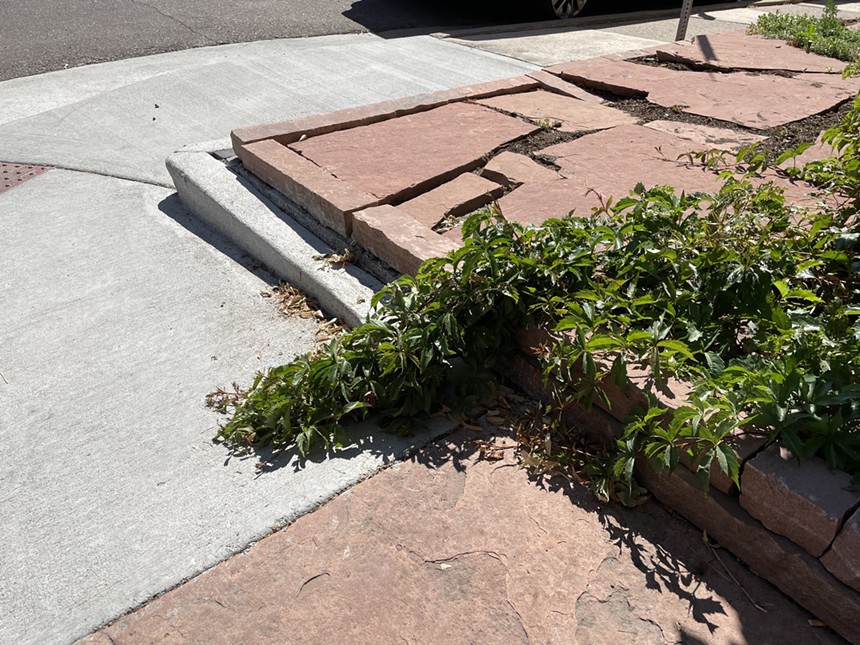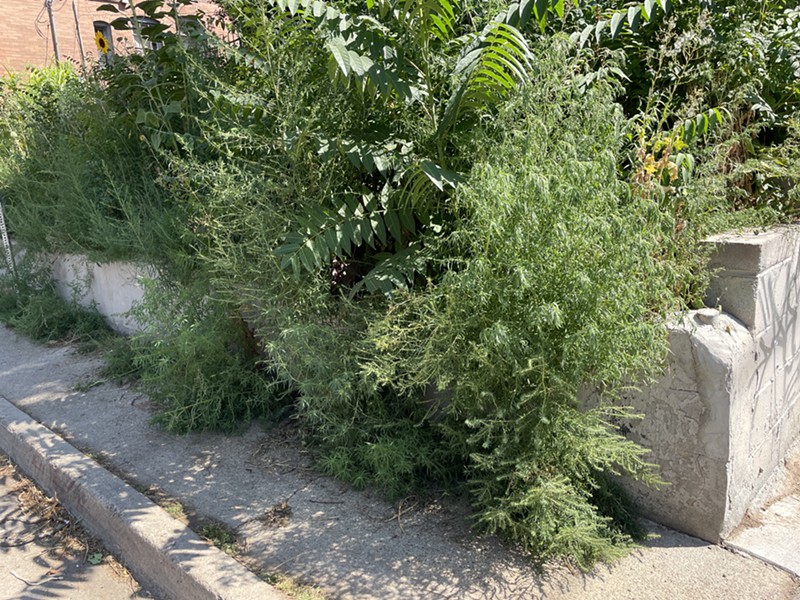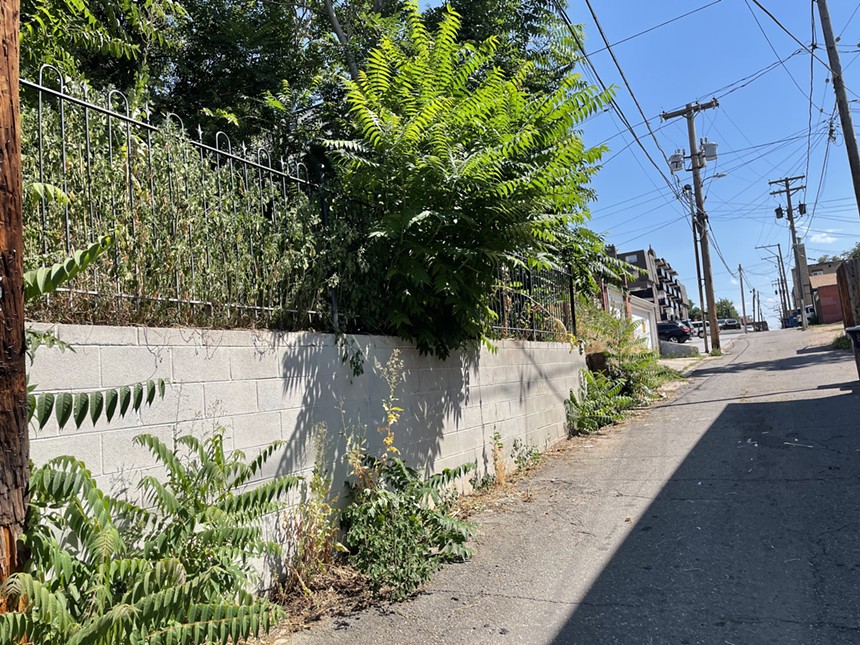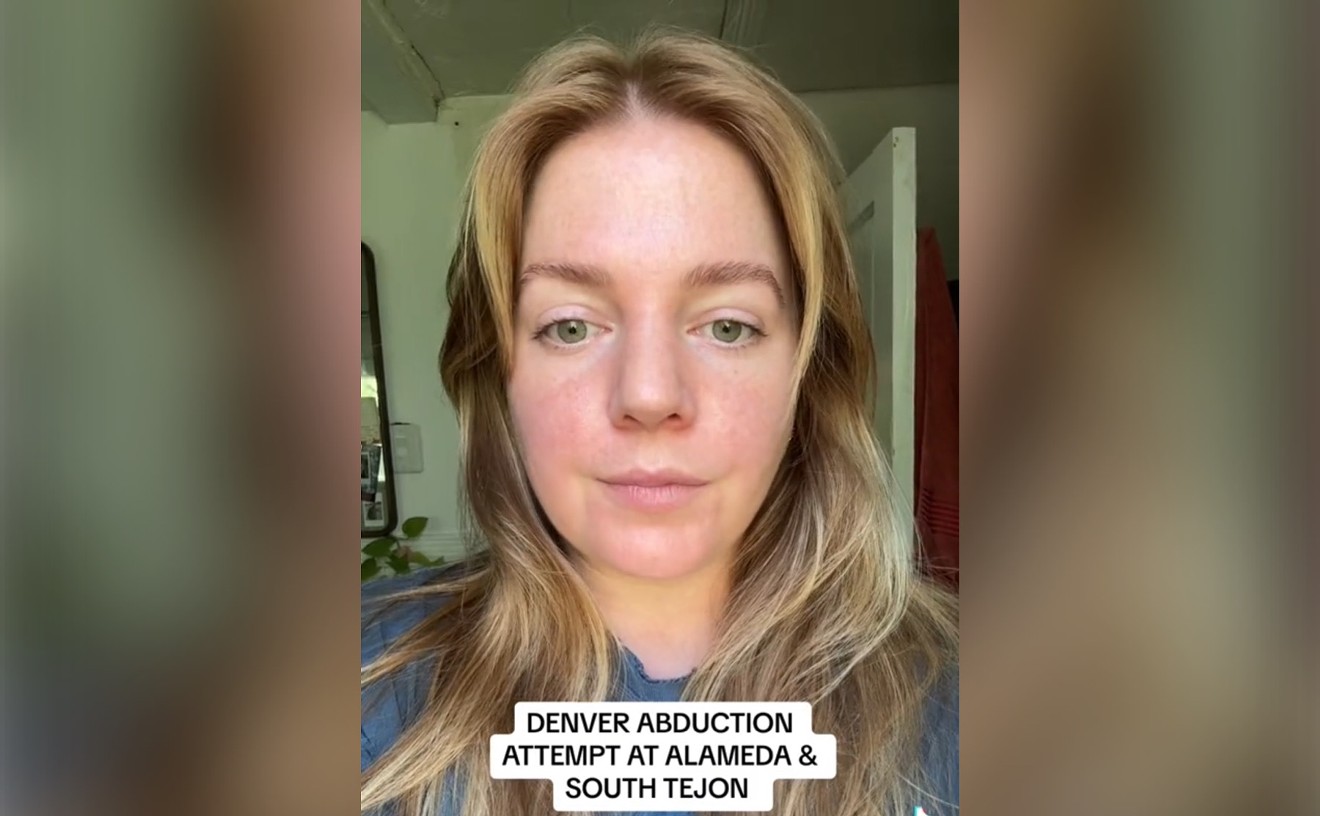No, not that kind of weed — the invasive and obnoxious plant kind.
In the Athmar Park neighborhood Facebook group, a resident recently posted a plea for the community to use compassion and grace before calling the city to report their neighbors for overgrown weeds and other vegetation. Others quickly shared that they, too, had been cited by the city.
“People were saying their whole block was getting notices,” Hoffman tells Westword, adding that something seemed off about the deluge of citations. “Even the most Karen-est Karen, how many streets do they really care about?”
Hoffman was issued a notice of violation in July 2022, after he and his wife returned from their annual summer trip to see family. So he’s familiar with the anxiety of such a citation, which — if not corrected — can lead to fines of up to $999. “I wasn't too pleased about it,” he says. “I got off with a warning, but it was also a year probation, which just expired last month.”
In the meantime, any other violations would have forced Hoffman to pay a fine starting at $150. His yard is infested with the invasive Smooth Sumac, or Tree of Heaven, which makes things even more difficult.
“If its invasive habits aren’t enough, its roots are allelopathic, releasing chemicals that can inhibit germination or growth of nearby plants,” reports Colorado State University. “Tree of Heaven can be difficult to eradicate, requiring persistent removal techniques.”
On Hoffman's property, there's a thirty-foot version of the tree, which he says can grow up to a foot in just a few weeks. After being placed on weed probation, he felt it was risky to take a vacation, because offshoots could create more unwanted attention from the city.
“You could have a time lapse of sumac and never have to speed up the camera,” he says. “It's a six-inch cut-off for weeds to get their attention, is what I was told. … Anytime we're gone more than a week between spring and fall, there's guaranteed to be at least one sumac plant that pops up.”
Because he doesn't have the funds to keep a landscaper on retainer, Hoffman felt he was at risk for an immediate fine. He and his wife have a newborn, so they generally have less time to maintain their yard. Hoffman also runs a recreational sports league, so he tends to work in the evenings — just when it cools off enough to do yard work in the hotter months.
After Hoffman heard that his neighbors were getting hit with notices this summer, he began to wonder if they were really complaints from neighbors or if the city was ramping up enforcement. And he wasn’t the only one asking that question. “With all the bad things going on in Denver, the city found time to write me up for my flowers going out over the sidewalk!” Leon Buckley posted on the Platt Park NextDoor forum on August 2. “I think they need to figure out their priorities.”
Inspections in Denver are generally based on complaints from residents to the city's Neighborhood Inspections department. “If an inspector happens to see a violation while they are on their inspection route, they may respond to it,” notes Amanda Weston, a spokesperson for Community Planning & Development, which oversees operations.
With all of the rain Denver has experienced this year, inspection routes have been more likely to contain overgrown vegetation. The city has already exceeded its annual average precipitation: June 2023 was the wettest June on record, with 6.1 inches of rain that month.
“Nature's quick to make use of all that rainfall,” Hoffman points out.
Rainfall has been high, and so are citations: According to data obtained through a Colorado Open Records Act (CORA) request, they're up from last year.
When the city pulled the data on August 3, nearly 60 percent of the year had passed. By that point, Denver had already conducted 79 percent of the initial inspections for vegetation and weed complaints that it had conducted in all of 2022, and 82 percent of the number of violation notices issued in 2022 had been issued.
It adds up to 3,896 complaints last year and 2,918 so far in 2023, along with 2,738 ten-day notices so far in 2023 compared to last year’s total tally of 3,668. But the number of follow-up inspections is down, with the city completing less than half of the follows through early August that it completed in all of last year.
In 2022, follow-up inspections found that 64 percent of residents were in compliance. This year, just 49 percent were deemed compliant.
This year, Neighborhood Inspections added a specific code for complaints related to weeds and debris in addition to the overgrown vegetation code it's traditionally used. “The two different complaint codes mean the same thing,” Weston clarifies. “We just implemented a new terminology this year for tracking purposes.”
So far, there have been 77 weed- and debris-specific complaints and 2,918 vegetation complaints since the start of the year. "Plant growth may not extend onto adjacent sidewalks, streets or alleys, or block visibility at street corners," says Neighborhood Inspections of the qualifications for these citations.

When plants make their way onto the sidewalk, they can earn a citation for the homeowner.
Catie Cheshire
“It's a neighborhood that has some of the most affordable single-family houses,” he says.
In fact, Athmar Park has one of the highest totals of vegetation violations in 2023, with 140. That’s a pretty big increase from the 66 people that the neighborhood saw get written up in 2022.
Other neighborhoods that have fallen prey in recent months include Harvey Park, with 136 vegetation violations; Montbello, with 134; and Sunnyside, with 91. Last year, Harvey Park only tallied 60, while Montbello racked up 159 and Sunnyside earned 111.
Harvey Park and Sunnyside both have blocks with low median household incomes. Ruby Hill, which borders Athmar Park, saw a steep increase in citations, from 28 last year to 79 this year.
Harvey Park becomes the most-cited neighborhood in 2023 when adding in weed and debris citations. People living there have received 29 of those ten-day notices so far. Harvey Park South is the next closest, with eight; then comes Ruby Hill, with six.
Auraria, Central Business District, Union Station and Kennedy are the only four neighborhoods in the city that haven't received any complaints as of August 3. Lowry Field has had no notices, but did receive a complaint.
Other neighborhoods that haven't received many citations are DIA and Indian Creek; both have just one household that's received a ten-day notice. Southmoor has three, and Central Park and Marston both have five.
Sun Valley, another neighborhood with low citations, had just one last year and now two this year. WIth the Denver Housing Authority redevelopment occurring there, many families have been relocated. For a long time, Sun Valley was known as the poorest neighborhood in Denver. Another neighborhood with a low median household income, Globeville, has seen fewer citations in 2023 as well, with seven. It had 38 in 2022.
But in neighborhoods with higher median incomes, the stats are mixed.
Cherry Creek, for example, had 45 homes receive notices in 2022 and has registered 41 notices so far this year. Country Club collected fourteen last year and twelve so far this year.
In Hilltop, though, notices are way down, with sixty in 2022 and just 22 this year. In Washington Park, there have been 86 citations in 2023 compared to 99 last year.
Hoffman and his family didn't take their annual Fourth of July trip this year — partially because traveling with a newborn is difficult, but also because Hoffman was worried about getting dinged by the city again, since his probation ended on July 12.
“Oh, man," he recalls thinking. "Almost eligible for another warning."












